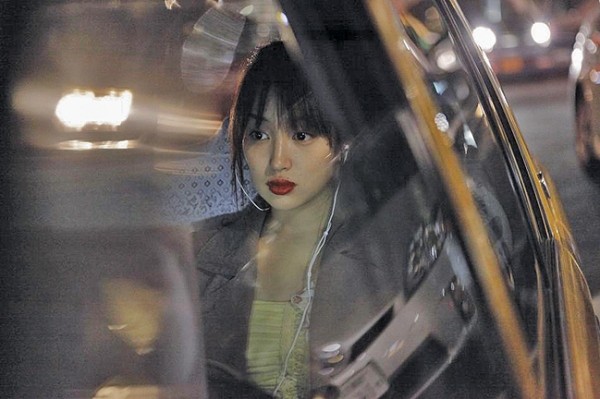
- Like Someone in Love
If I were to distill my gut reaction as the final credits began to roll on my first viewing of Abbas Kiarostami’s Like Someone in Love, it would look something like this: “Wha?”
It’s not that I was expecting something simple; Kiarostami’s previous feature, 2011’s Certified Copy, was a brilliantly complex relationship drama of shifting identity. But I didn’t expect to be so confounded by attempting to figure out what Kiarostami was up to in Like Someone in Love. Who were these people?
Why should I care? And why did they spend sooooo much time talking in cars?
The talking-in-cars part is certainly nothing new for Kiarostami’s films. Iran-set features like Taste of Cherry and Ten featured huge chunks of time spent with characters talking in cars; when Kiarostami made a documentary about his own filmmaking process, 10 on Ten, his comments were shot while he drove around.
Yet it took a second look at Like Someone in Love to grasp what in hindsight seemed so obvious: This might be the perfect thematic summation of why Kiarostami finds people talking in cars so compelling.
Right from the opening shot, there’s a uniquely enigmatic vibe to this Tokyo-set story. We hear the voice of Akiko (Rin Takanashi) having a cell-phone conversation with her boyfriend, but she’s not visible in the frame. Gradually, it becomes evident that college-student Akiko moonlights as a call girl, and her boss wants her to take on a very specific assignment that night. Once again, she’s out of the frame when she shouts her refusal; her face is already a passive mask again when Kiarostami cuts back to her. And Like Someone in Love slowly builds an uncomfortable disconnect as people attempt to communicate, with calls and messages frequently cut off or misunderstood.
That sense continues when we get our first extended car ride, as Akiko finally relents and takes a taxi to her client’s home. On the way, she listens to cell-phone messages left by her grandmother, who has taken a train into the city for a single day hoping to see Akiko. After the last plaintive message, Akiko directs the taxi toward the train station, where the car simply circles the spot where her grandmother waits, from a distance. As the lights of Tokyo reflect off of the taxi’s windows—gorgeously photographed by Katsumi Yanakijima—Kiarostami turns this into an exploration of the city as discrete units of humanity in motion, perpetually removed from one another.
Once Akiko meets her client—an elderly, retired university sociology professor and professional translator named Takashi (Tadashi Okuno)—there’s a hint that Kiarostami might be steering Like Someone in Love toward Certified Copy’s elusive sense of the relationships between its characters. But despite the teasing prospect that there might be a familial relationship between Takashi and Akiko, there’s a more straightforward humanity to the way the older man reaches out to someone who may simply remind him of past actions that separated him from his own family, particularly an estranged daughter. And when Akiko’s possessive boyfriend Noriuki (Ryo Kase)—who, as it happens, is a car mechanic—becomes the third part of this intriguing triangle, it becomes even more fascinating as a collision between traditional relationship dynamics and the realities of the modern world.
As much as anything, the sudden, startling ending of Like Someone in Love is likely to leave viewers flailing for what it all means; it’s the kind of moment that’s easy to find frustrating and unnecessarily opaque. But, without spoiling the moment, it ultimately feels perfectly of a piece with what has come before. All the scenes of people in cars—driving, philosophizing, blocking traffic as they try to help someone, even falling asleep when exhaustion overtakes them—come together in an unsettling drama about isolation and connection, one that explodes with the sense that there’s no real security in trying to put up walls between yourself and everyone around you. To be like someone in love is to be vulnerable, to “bump into things,” in the words of the classic song that gives the film its title. And for that to be possible, you’re going to need to get out of that car and step into the open air.
LIKE SOMEONE IN LOVE
![]()
Rin Takanashi, Tadashi Okuno, Ryo Kase
Not Rated